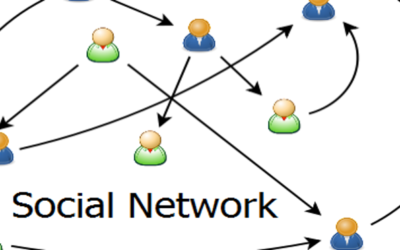
A dementia diagnosis is devastating. It rocks your world.
If your Mom (or Dad) has been diagnosed with dementia, the questions can be overwhelming.
What do you do?
How do you react?
How do you support your other parent through this journey?
It’s hard for family members to know how to interact – but it’s important to try.
The diagnosis of dementia is an incredibly difficult one to hear – for everyone involved. Learning about the progress of the disease and the behavioural changes to be expected can be devastating. It can seem as if the present and the future are both being swallowed up by the disease.
But there is a better way to deal with the diagnosis.
Bob DeMarco, creator and editor of the Alzheimer’s Reading Room and caregiver to his mother for many years, decided to put the relationship before the disease. In his words:
“Once I accepted the harsh reality that my mother was living with Alzheimer’s I made a simple straightforward decision — Dotty and I would live our lives as we always had. Don’t get me wrong, I understood there would be constraints which included Dotty’s age, and the effects of Alzheimer’s disease on the brain. To be honest, I decided to ignore both to the degree possible.”
Rather than focusing on the inevitable changes to come, Bob set about establishing new routines of social engagement and cognitive stimulation for his mother. A local restaurant became their weekly haunt where people and conversation were in ready supply. This is important. Individuals with Alzheimer’s usually find crowds and high noise levels very stressful. Bob helped his mother manage her stress by bringing her to the same seat every week – and by choosing a restaurant where finger food was the norm.
Focus on the Person
There is a difference between focusing on the disease and focusing on the person. It can take an effort to concentrate on your mom or dad rather than on the changes that you can’t help noticing. But by doing so, you start focusing on life. And Bob says it’s worth it:
“I see my mother in the way I always have…..Dotty is the same person I have known for my entire life…..We are continuing to live our life in the fullest way possible…..While there are times that somehow seem horrific, there are times that are also wonderful…..Quite frankly, Dotty never stops amazing me…..I learned one of the most simple lessons of them all…..Dotty is capable of doing more, much more, then I imagined during those two horrific years when I was a novice Alzheimer’s caregiver.”
There is a life after the diagnosis, for your loved one and you.
Your mom or dad should continue to be socially and cognitively involved in life after the diagnosis. You have a role to play in helping them do just that. Most individuals with dementia report that they desire more opportunities for social interaction. You may, however, feel at a loss on how to provide them. This is where our Enable Program can be helpful. This program provides weekly exercises and activities that not only stimulate the brain but help you build and maintain your relationship.
Your relationship will change with the progression of the disease but that doesn’t mean it ends. Your mom is still you mom and your dad is still your dad. You need to find ways to engage and interact with them. This is important for everyone in the family. You are creating patterns of relating that will impact your children and grandchildren.
Check Out Our Family Caregiver Enable Program
Help and Support for Your Changing Role
Don’t forget your ‘healthy’ parent.
The primary caregiver faces significant health risks when their spouse is diagnosed with dementia. A recent study found that dementia caregivers, as opposed to spouses taking care of persons without a dementia diagnosis, had a 40.5% increase in frailty by the time of the death of their spouse. This increase of frailty in spouses of persons with dementia spikes to 90% after the death of the spouse. It is important, therefore, to pay attention to your healthy parent.
As I learned during my mother’s illness, parents take the illness of their spouse as a deeply personal matter and often do not want to involve their children. They don’t typically look to their kids to solve the problems that crop up during caregiving. It requires sensitivity and awareness to keep on top of the changes that are happening and to recognize the stress on your healthy parent. There is a great deal of chronic stress that can occur when living with someone with dementia.
Areas for concern are sleep, social networks and physical exercise. Taking care of these three areas is important for cognitive resilience and to avoid depression.
Getting Sufficient Sleep
Your mom or dad’s nighttime sleep patterns could be totally disrupted by their spouse’s dementia. It is not unusual for individuals with dementia to have sleep problems. Ask them if they are sleeping. If they are having problems – get help. Sleep deprivation can have devastating consequences on mental health and cognitive functioning.
Check out our HealthStatus blog on sleep or get our sleep hygiene checklist in the Enable Program.
Healthy Social Networks
Maintaining healthy social networks is important. Social isolation and loneliness are key indicators for cognitive decline. If your mom or dad is feeling isolated or lonely, help them find ways of maintaining contact with friends. Face-to-face interactions with family and friends are important for mental health. Make sure there are at least two or three a week.
To dig deeper, check out our blog on Social Networks or get our social network checklist in the Enable Program
Physical Exercise
Physical exercise is important for a healthy body and a healthy mind. Research is showing the clear benefits of physical activity on mental health. Ensure your mom or dad is getting sufficient exercise every day. Check with their physician to find out what is safe. And then make it happen for them.
Supporting your parents through the journey of this disease is challenging. Roles and needs change. There is much sadness but there can also be profound joy. Focusing on the relationships that you have and want to maintain and grow is the best way through it all. We have built our Enable Family program with this in mind. We want to support you on this journey.
Check Out Our Family Caregiver Enable Program
Help and Support for Your Changing Role




0 Comments